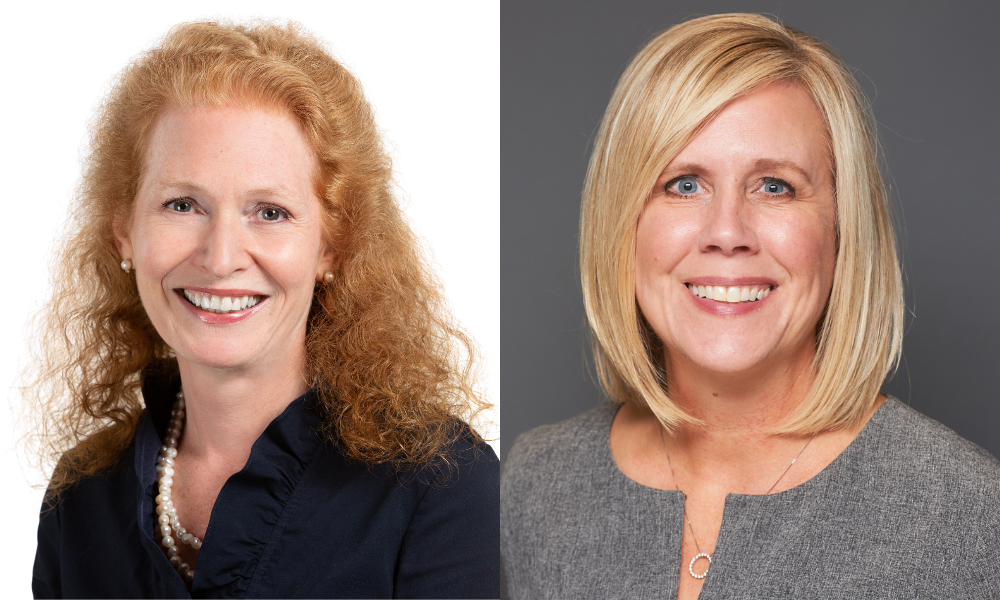
New report looks at job satisfaction among first cohort of lawyers to graduate during pandemic

The first class of lawyers to graduate during the Covid-19 pandemic are actively seeking new jobs at a historically low rate, even though fewer of these lawyers say they are “extremely satisfied” with their current roles, according to a report released Tuesday.
Jointly conducted by NALP and the NALP Foundation, the annual survey examines job satisfaction and employment trends among recent law school graduates. Tuesday’s report was based on a survey of 166 alumni who graduated from four Canadian law schools in 2020.
In addition to asking about the respondents’ professional identity and reasons for switching roles, this year’s report included new questions about the number of days a week respondents had to work in the office and how they rated leadership transparency and communication at their current jobs.
“Overall, it was just surprising,” Jennifer Mandery, vice president for research at the NALP Foundation, told Canadian Lawyer. “This was the first pandemic class – so the first class that had gone through law school and graduated in the pandemic and went out into the workforce – and there weren't as many divergences as we thought there would be with this class’ satisfaction level.
“Though it decreased, it still remained high,” Mandery says.
According to the survey, 53 percent of respondents said they have held at least two different positions since graduating in 2020 – a decrease from the 65 percent of 2019 graduates who reported the same level of job mobility.
A historically low rate (11 percent) of respondents with jobs reported that they were actively applying for new roles. In previous years, this rate has fluctuated between 13 percent and 21 percent, falling to 14 percent with the class of 2019.
Among 2020 alumni who have held more than one job since graduation, the main reasons cited for pursuing new roles were “attitude or ‘fit’ concerns” (49 percent), wanting more support for mental health concerns (49 percent), and the desire to pursue specific practice interests (48 percent).
The report also found a slight decline in overall job satisfaction, with 35 percent of respondents saying they felt “extremely satisfied” with their current positions, a decrease from the 38 percent of 2019 graduates who reported the same. Forty-three percent of 2020 alumni said they were “somewhat satisfied” with their jobs, declining from the class of 2019’s 45 percent.
Respondents who worked remotely had slightly higher levels of job satisfaction than those who worked on a hybrid schedule or completely in-office.
“The fact that we are continuing to see more than half of these folks saying they’ve already had multiple positions is something of us all within the legal ecosystem to keep… our eye on,” says Fiona Trevelyan Hornblower, president and CEO of the NALP Foundation.
“Is it telling us something about how well law students and law schools, and employers are engaging in the matching process? Is there something that is not quite working as effectively as it might where we see these very high levels of mobility?”
Regarding demographics, more than two-thirds of the 2020 alumni surveyed worked in private practice. Thirteen percent reported working at businesses or corporations, while 10 percent said they worked in government. About three-quarters of the respondents said their annual income fell between $101,000 and $200,000.
More than half the respondents (54 percent) reported having educational debt, with the average debt load falling to $33,118. The report noted a correlation between the amount of debt respondents carried and their job choices, major life decisions, and the quality of their mental health.
“Graduates are carrying a large amount of educational debt three years out of law school, and that debt has a great impact on them, not only professionally and what job choices they're having, but also life choices – when they're going to have children, where are they going to live, if or when they will get married,” Mandery says.
“It's also having an impact on their well-being and mental health,” she adds. “We continue to see that being a driver for graduates leaving their jobs and changing to new [ones] because they're looking for support for that.”
Hornblower noted several commonalities between Canadian and US law school alumni who graduated in 2020, whom the foundation also surveyed. Both cohorts are experiencing high levels of job mobility and debt, although the actual dollar amounts are higher in the US.
The NALP Foundation will provide 2021 law school graduates with opportunities to participate in its following survey this fall.